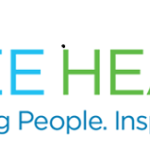 In early 2005 news began to surface that at least one and maybe several pain medications in the Cox-2 inhibitor class were causing heart attacks. Further investigation revealed that the manufacturer and the FDA ignored warnings that the drug should not be available for use due to severe health risks. Issues were raised as to how much a doctors or patients can trust a pharmaceutical representative to honestly explains risks with medications, or if the manufacturer is honest with its own sales representatives.
In early 2005 news began to surface that at least one and maybe several pain medications in the Cox-2 inhibitor class were causing heart attacks. Further investigation revealed that the manufacturer and the FDA ignored warnings that the drug should not be available for use due to severe health risks. Issues were raised as to how much a doctors or patients can trust a pharmaceutical representative to honestly explains risks with medications, or if the manufacturer is honest with its own sales representatives.
Pharmacology is turning more and more patients away from allopathic and osteopathic physicians, even those patients in severe and chronic pain. How can the MD or DO continue to assist the patient, keep their confidence and know that the therapy is safe and has fewer side effects? Maybe it is time for referral to alternative therapies for pain care.
My experience has been that too often, non drug therapies are rarely prescribed by the traditional medical establishment. There are many so called alternative therapies available to help patients in pain, and yet, too many physicians fail to think outside the box of pharmacology, even knowing how damaging those pharmaceuticals can be in the both the short and long run. Certainly this is partly driven by patients seeking pharmacology, but much is due to lack of physician awareness of who to refer to and what therapies they can feel confident in referring.
Acupuncture and Oriental Medicine is one of those “alternatives” and is the oldest contiguously practiced form of medicine. Patients are turning to Acupuncture Physicians to alleviate pain without unpleasant side effects. Quite often this is done as that “last resort” by the patient for whom other therapies have either not worked, or, by those patients who dont want to suffer the side effects of pharmaceuticals.
Acupuncture is traditionally applied with needles, and in recent years there has been an increase in the use of laser, LED, electric stimulation and microcurrent as application forms.
More studies are validating acupuncture for the treatment of pain of all types. Anesthesiology News reported results from a controlled, double blind study that acupressure applied to only two points reduced pain and anxiety in test subjects with radial fractures.
Two recent studies have shown acupuncture effective in treating osteoarthritis pain of the knee, one conducted at the University of Maryland and the other in Spain. In July of 2005 Acupuncture Today reported that NIH conducted an analysis of two dozen studies and determined that acupuncture is “significantly more effective” than sham acupuncture or no treatment in people with chronic back pain.
A web search for Acupuncture and Pain care produces reports of studies validating acupuncture for the treatment of pain from prostatitis, neck pain, chronic back pain, cancer induced pain, and more. More studies need to be conducted for the satisfaction of the western medical establishment, but patients and Acupuncture Physicians are convinced by experience, and more Medical Doctors are as well.
In Florida, Acupuncture Physicians are the specialists in the field of Acupuncture and Oriental Medicine. Licensed by the State Board of Acupuncture and Oriental Medicine, licensees must complete a Masters Degree program and pass a national certification examination to receive licensure. In the hands of trained experts Acupuncture and other therapies of Chinese medicine have very low risk for side effects.
For the MD or DO, referring outside of the known and “certain” can be uncomfortable to do, but with the increasingly obvious reality that pain medicines come with too many health risks and that patients are demanding alternatives to life long dependency and unpleasant side effects, maybe it is time to consider a 5000 year old, empirically and scientifically proven therapy for pain. Acupuncture does not cause heart attacks, drowsiness, intestinal disorders or damage to internal organs or any of the many side effects and health risks of pharmaceuticals for pain.
Post Views: 653
 In early 2005 news began to surface that at least one and maybe several pain medications in the Cox-2 inhibitor class were causing heart attacks. Further investigation revealed that the manufacturer and the FDA ignored warnings that the drug should not be available for use due to severe health risks. Issues were raised as to how much a doctors or patients can trust a pharmaceutical representative to honestly explains risks with medications, or if the manufacturer is honest with its own sales representatives.
In early 2005 news began to surface that at least one and maybe several pain medications in the Cox-2 inhibitor class were causing heart attacks. Further investigation revealed that the manufacturer and the FDA ignored warnings that the drug should not be available for use due to severe health risks. Issues were raised as to how much a doctors or patients can trust a pharmaceutical representative to honestly explains risks with medications, or if the manufacturer is honest with its own sales representatives. 
























